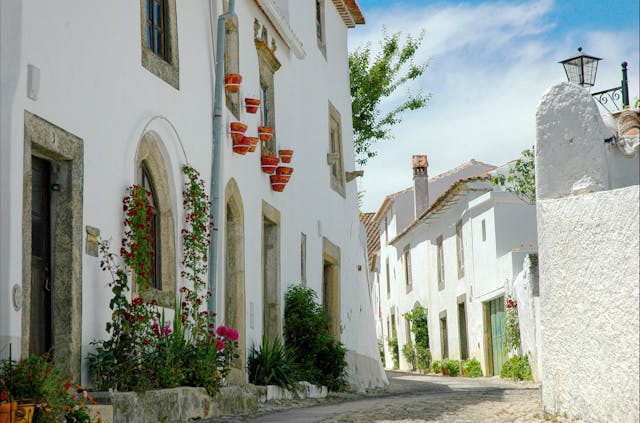How Long Does it Take to Learn Portuguese? Key Information to Speed Up the Process
Portuguese is a fairly easy language for English speakers to learn. According to the American Foreign Service Institute (FSI), Portuguese is categorised as Category I. This means it is relatively straightforward for native English speakers to acquire. However, beyond these official classifications, to answer the question "How long does it take to learn Portuguese?" we need to consider the individual learner and their commitment to immersing themselves in the language.
In today's blog, we'll guide you on ways to speed up the process and make your Portuguese-learning a more enjoyable experience!
Table of Contents
→Sign Up Now: Free Trial Portuguese Lesson With a Native Teacher!←
How Long Does It Take to Learn Portuguese According to Experts?
When considering how long it takes to learn Portuguese, the American Foreign Service Institute (FSI) serves as a useful benchmark. The FSI offers training to U.S. diplomats and government employees, categorising languages by their difficulty for native English speakers. Languages are grouped into five categories, with Category I being the least challenging and Category V the most difficult.
Portuguese is in Category I, indicating that it is relatively accessible for English speakers. According to FSI estimates, achieving "Professional Working Proficiency" in Portuguese typically requires around 600-750 hours of classroom instruction. This level of proficiency enables individuals to comfortably engage in conversations on a range of topics, comprehend newspapers and magazines, and write correspondences such as memos and letters with reasonable grammatical accuracy and a good vocabulary.
To provide some context, French, also a Category I language, demands a similar time investment of 600-750 hours. In contrast, a Category IV language such as Arabic presents a greater challenge, with the FSI estimating that it takes approximately 2,200 hours to reach the same proficiency level.
To help you on your journey, below are a few study plans that outline the time commitment required based on different levels of engagement.
How to Learn Portuguese: Possible Study Plans
- 4 Hours a Week: With a consistent study schedule of 4 hours weekly, it would take around 3 to 4 years to achieve proficiency. This plan suits individuals who prefer a more relaxed learning pace or those balancing multiple commitments.
- 1 Hour a Day: At this pace, you can expect to reach Professional Working Proficiency in approximately 1.5 to 2 years. This approach is ideal for those with busy schedules who can only dedicate a small portion of their day to study.
- 10 Hours a Week: For a more intensive approach, studying 10 hours a week could lead to proficiency within 1 to 1.5 years. This option is excellent for learners aiming for quicker results, perhaps due to professional or personal reasons, and who can commit to a more rigorous study regimen.
How to Learn Portuguese Fast: 3 Important Factors
1. Motivation Is Key
When it comes to how to learn Portuguese effectively, motivation plays a crucial role. There are two types of motivation: intrinsic and extrinsic. Intrinsic motivation comes from within, such as a genuine interest in the language or a love for Portuguese culture. For instance, someone might want to read Portuguese literature in its original form or communicate with Portuguese-speaking friends and family. Extrinsic motivation, on the other hand, involves external factors like job requirements or academic goals. An example would be learning Portuguese to improve career prospects or to fulfil a degree requirement.
A combination of both intrinsic and extrinsic motivation is ideal for speeding up the learning process. While intrinsic motivation keeps the learner engaged and curious, extrinsic motivation provides clear goals and deadlines. This dual approach ensures a balanced and sustained effort in learning, making it easier to stay committed and reach proficiency faster.
2. Learning Methods Need to Be Carefully Chosen
Choosing the right learning methods is essential when considering how long it takes to learn Portuguese. There is a distinction between inauthentic and authentic learning materials. Inauthentic materials are specifically designed for language learners, such as scripted dialogues or simplified texts. These resources are useful for beginners as they introduce fundamental grammar and vocabulary in a controlled manner.
Authentic materials, however, are created for native speakers and include things like newspapers, podcasts, and movies. These resources expose learners to natural language usage, idiomatic expressions, and cultural nuances. A combination of both types of materials is ideal, as it allows learners to build a strong foundation while also experiencing the language its most genuine form.
At Listen & Learn, our teachers help students find the right balance between inauthentic and authentic materials while guiding them to make the most of both. More importantly, we emphasise a communicative approach over a purely grammar-based approach, focusing our personalised Portuguese courses on real-life communication skills. Our teachers also work with students to identify their learning styles and preferences, tailoring lessons to include materials and activities that resonate with them, thereby making the learning process more effective and enjoyable.
3. Portuguese Immersion Accelerates the Learning Process
One of the most effective ways to accelerate learning is through immersion. Besides taking lessons, there are numerous ways students can immerse themselves in the Portuguese language and culture. For those in London, the Anglo-Portuguese Society promotes cultural exchange between the UK and Portugal. They host events celebrating Portuguese art, music, and history. For example, they organise lectures, cultural dinners, and other events that foster a deeper appreciation of Portuguese culture.
At home, students can further immerse themselves by watching Portuguese films and TV shows, listening to Portuguese music, or joining online communities of Portuguese speakers. Engaging with Portuguese media not only enhances language skills but also keeps the learning process enjoyable and relevant.
By integrating these strategies into your study routine, you can significantly reduce the time it takes to learn Portuguese and make the journey more rewarding. However, you don’t have to do it all on your own. At Listen & Learn, we create personalised Portuguese lesson plans to help you learn English in a supportive and engaging learning environment. Contact us today and we’ll pair up with a native teacher for a trial lesson!
Learning Portuguese Near Me: Your Questions Answered
Where can I learn Portuguese near me?
Listen & Learn offers convenient in-person Portuguese lessons in every major city in the UK, including Portuguese courses in London, Liverpool and Brighton. Whether you prefer studying at home, at your workplace, or in a public space like a café, our flexible approach ensures that you can learn in a setting that suits your schedule and lifestyle.
Where can I learn Portuguese for free?
Listen & Learn provides a free trial lesson for our online Portuguese courses, allowing you to experience our teaching style and decide if it's the right fit for you. Additionally, the Camões Centre for Portuguese Language and Culture at King's College London offers a variety of free events, including interdisciplinary symposia and cultural activities focused on Portuguese and Brazilian cultures.
→Sign Up Now: Free Trial Portuguese Lesson With a Native Teacher!←
How can I learn Portuguese fast?
To learn Portuguese quickly, immersion is key. Engaging in activities such as attending Portuguese cultural events, participating in language exchange meetups, and consistently practising with native speakers can significantly enhance your learning speed. Additionally, integrating Portuguese into your daily life—by watching Portuguese films, listening to Portuguese music, and reading Portuguese newspapers—can accelerate your progress and deepen your understanding of the language.




